Katja Hofmann
UniMASK: Unified Inference in Sequential Decision Problems
Nov 20, 2022



Abstract:Randomly masking and predicting word tokens has been a successful approach in pre-training language models for a variety of downstream tasks. In this work, we observe that the same idea also applies naturally to sequential decision-making, where many well-studied tasks like behavior cloning, offline reinforcement learning, inverse dynamics, and waypoint conditioning correspond to different sequence maskings over a sequence of states, actions, and returns. We introduce the UniMASK framework, which provides a unified way to specify models which can be trained on many different sequential decision-making tasks. We show that a single UniMASK model is often capable of carrying out many tasks with performance similar to or better than single-task models. Additionally, after fine-tuning, our UniMASK models consistently outperform comparable single-task models. Our code is publicly available at https://github.com/micahcarroll/uniMASK.
Contextual Squeeze-and-Excitation for Efficient Few-Shot Image Classification
Jun 20, 2022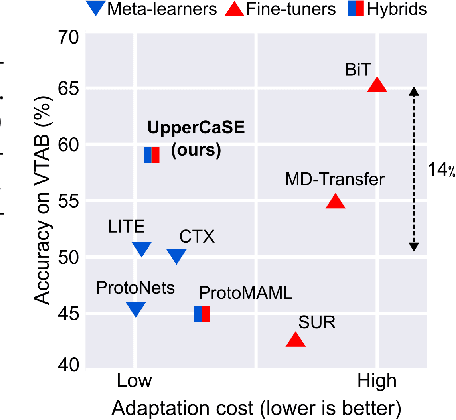

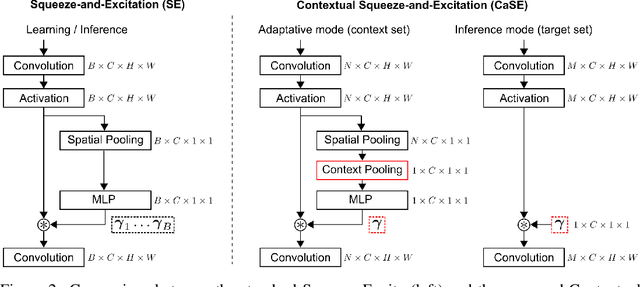

Abstract:Recent years have seen a growth in user-centric applications that require effective knowledge transfer across tasks in the low-data regime. An example is personalization, where a pretrained system is adapted by learning on small amounts of labeled data belonging to a specific user. This setting requires high accuracy under low computational complexity, therefore the Pareto frontier of accuracy vs.~adaptation cost plays a crucial role. In this paper we push this Pareto frontier in the few-shot image classification setting with two key contributions: (i) a new adaptive block called Contextual Squeeze-and-Excitation (CaSE) that adjusts a pretrained neural network on a new task to significantly improve performance with a single forward pass of the user data (context), and (ii) a hybrid training protocol based on Coordinate-Descent called UpperCaSE that exploits meta-trained CaSE blocks and fine-tuning routines for efficient adaptation. UpperCaSE achieves a new state-of-the-art accuracy relative to meta-learners on the 26 datasets of VTAB+MD and on a challenging real-world personalization benchmark (ORBIT), narrowing the gap with leading fine-tuning methods with the benefit of orders of magnitude lower adaptation cost.
Interactively Learning Preference Constraints in Linear Bandits
Jun 10, 2022
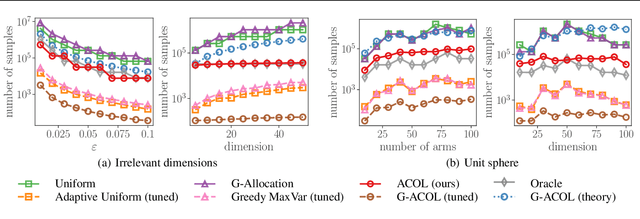

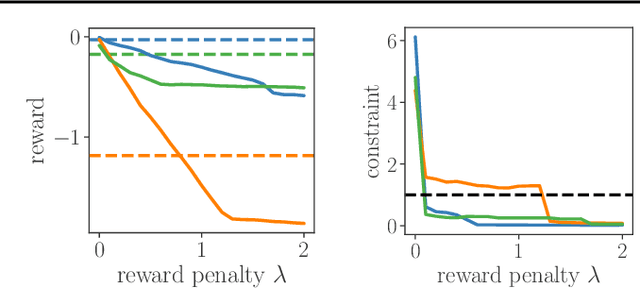
Abstract:We study sequential decision-making with known rewards and unknown constraints, motivated by situations where the constraints represent expensive-to-evaluate human preferences, such as safe and comfortable driving behavior. We formalize the challenge of interactively learning about these constraints as a novel linear bandit problem which we call constrained linear best-arm identification. To solve this problem, we propose the Adaptive Constraint Learning (ACOL) algorithm. We provide an instance-dependent lower bound for constrained linear best-arm identification and show that ACOL's sample complexity matches the lower bound in the worst-case. In the average case, ACOL's sample complexity bound is still significantly tighter than bounds of simpler approaches. In synthetic experiments, ACOL performs on par with an oracle solution and outperforms a range of baselines. As an application, we consider learning constraints to represent human preferences in a driving simulation. ACOL is significantly more sample efficient than alternatives for this application. Further, we find that learning preferences as constraints is more robust to changes in the driving scenario than encoding the preferences directly in the reward function.
Towards Flexible Inference in Sequential Decision Problems via Bidirectional Transformers
Apr 28, 2022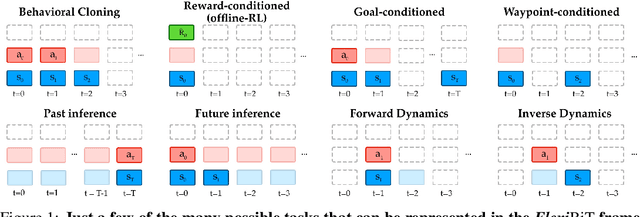
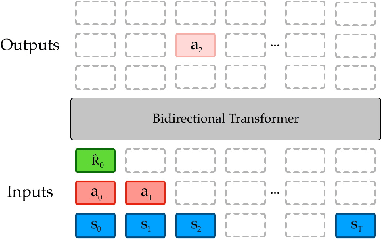
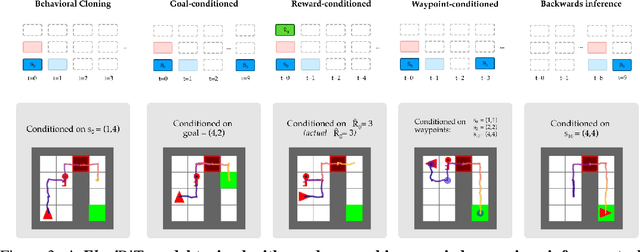
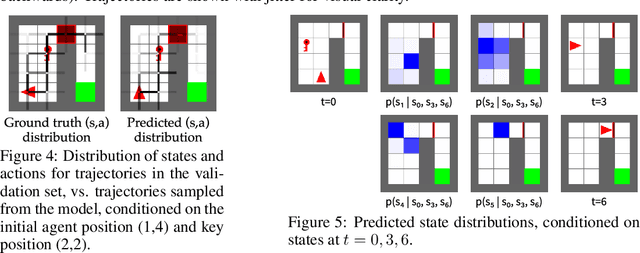
Abstract:Randomly masking and predicting word tokens has been a successful approach in pre-training language models for a variety of downstream tasks. In this work, we observe that the same idea also applies naturally to sequential decision making, where many well-studied tasks like behavior cloning, offline RL, inverse dynamics, and waypoint conditioning correspond to different sequence maskings over a sequence of states, actions, and returns. We introduce the FlexiBiT framework, which provides a unified way to specify models which can be trained on many different sequential decision making tasks. We show that a single FlexiBiT model is simultaneously capable of carrying out many tasks with performance similar to or better than specialized models. Additionally, we show that performance can be further improved by fine-tuning our general model on specific tasks of interest.
Monotonic Improvement Guarantees under Non-stationarity for Decentralized PPO
Jan 31, 2022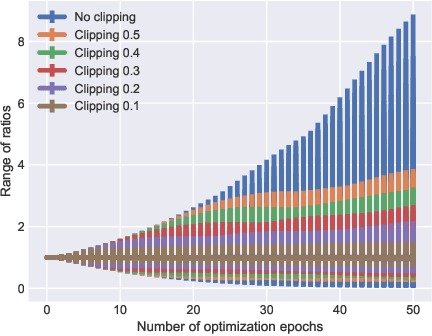
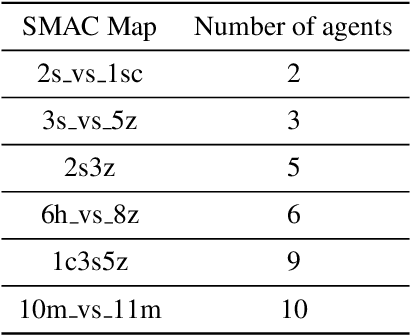
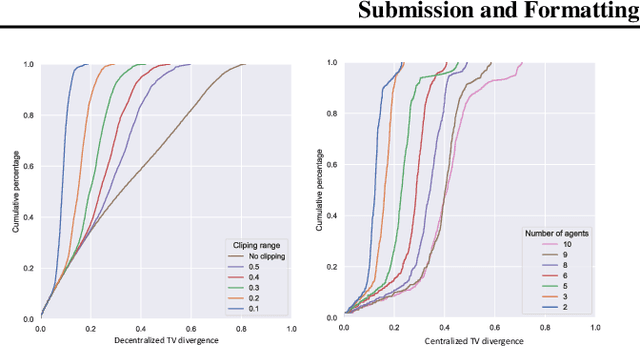
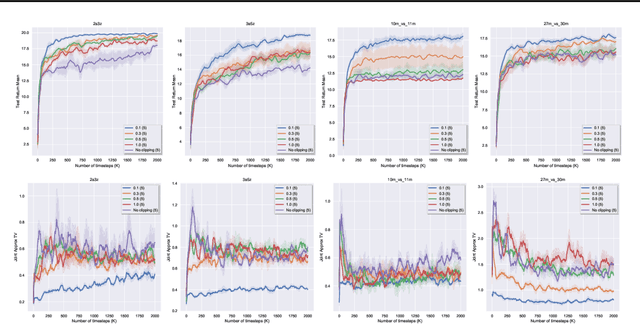
Abstract:We present a new monotonic improvement guarantee for optimizing decentralized policies in cooperative Multi-Agent Reinforcement Learning (MARL), which holds even when the transition dynamics are non-stationary. This new analysis provides a theoretical understanding of the strong performance of two recent actor-critic methods for MARL, i.e., Independent Proximal Policy Optimization (IPPO) and Multi-Agent PPO (MAPPO), which both rely on independent ratios, i.e., computing probability ratios separately for each agent's policy. We show that, despite the non-stationarity that independent ratios cause, a monotonic improvement guarantee still arises as a result of enforcing the trust region constraint over all decentralized policies. We also show this trust region constraint can be effectively enforced in a principled way by bounding independent ratios based on the number of agents in training, providing a theoretical foundation for proximal ratio clipping. Moreover, we show that the surrogate objectives optimized in IPPO and MAPPO are essentially equivalent when their critics converge to a fixed point. Finally, our empirical results support the hypothesis that the strong performance of IPPO and MAPPO is a direct result of enforcing such a trust region constraint via clipping in centralized training, and the good values of the hyperparameters for this enforcement are highly sensitive to the number of agents, as predicted by our theoretical analysis.
You May Not Need Ratio Clipping in PPO
Jan 31, 2022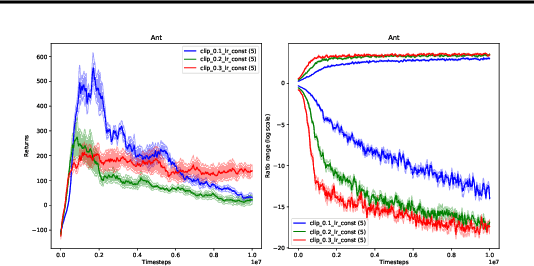
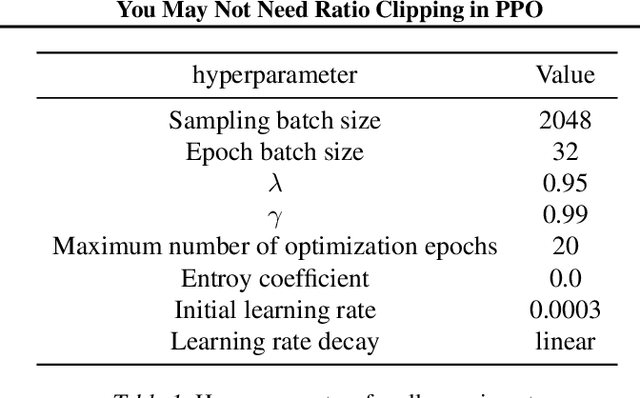
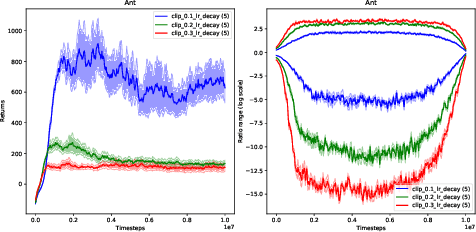
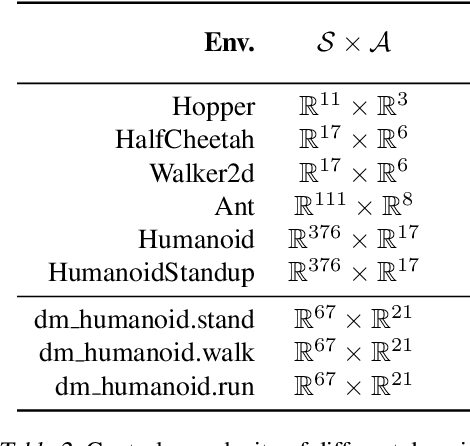
Abstract:Proximal Policy Optimization (PPO) methods learn a policy by iteratively performing multiple mini-batch optimization epochs of a surrogate objective with one set of sampled data. Ratio clipping PPO is a popular variant that clips the probability ratios between the target policy and the policy used to collect samples. Ratio clipping yields a pessimistic estimate of the original surrogate objective, and has been shown to be crucial for strong performance. We show in this paper that such ratio clipping may not be a good option as it can fail to effectively bound the ratios. Instead, one can directly optimize the original surrogate objective for multiple epochs; the key is to find a proper condition to early stop the optimization epoch in each iteration. Our theoretical analysis sheds light on how to determine when to stop the optimization epoch, and call the resulting algorithm Early Stopping Policy Optimization (ESPO). We compare ESPO with PPO across many continuous control tasks and show that ESPO significantly outperforms PPO. Furthermore, we show that ESPO can be easily scaled up to distributed training with many workers, delivering strong performance as well.
Deterministic and Discriminative Imitation (D2-Imitation): Revisiting Adversarial Imitation for Sample Efficiency
Dec 11, 2021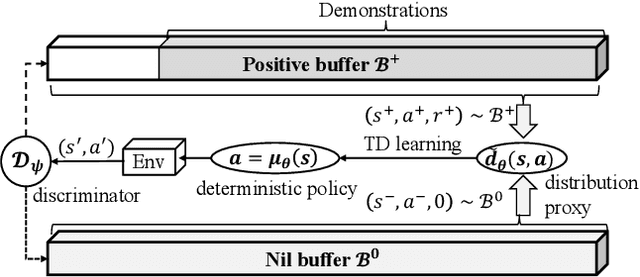
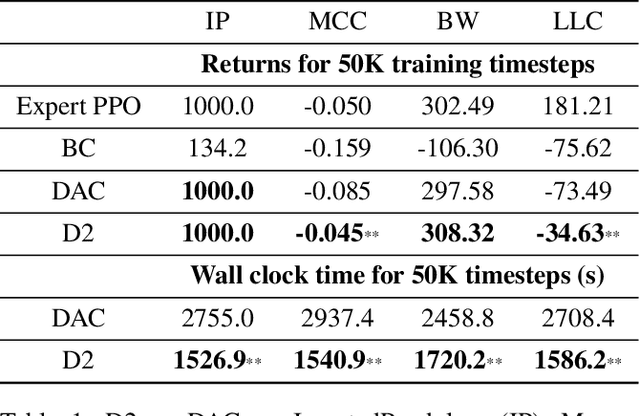
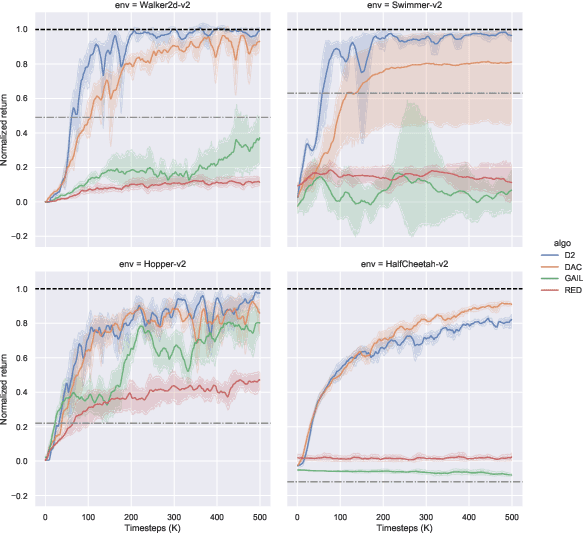

Abstract:Sample efficiency is crucial for imitation learning methods to be applicable in real-world applications. Many studies improve sample efficiency by extending adversarial imitation to be off-policy regardless of the fact that these off-policy extensions could either change the original objective or involve complicated optimization. We revisit the foundation of adversarial imitation and propose an off-policy sample efficient approach that requires no adversarial training or min-max optimization. Our formulation capitalizes on two key insights: (1) the similarity between the Bellman equation and the stationary state-action distribution equation allows us to derive a novel temporal difference (TD) learning approach; and (2) the use of a deterministic policy simplifies the TD learning. Combined, these insights yield a practical algorithm, Deterministic and Discriminative Imitation (D2-Imitation), which operates by first partitioning samples into two replay buffers and then learning a deterministic policy via off-policy reinforcement learning. Our empirical results show that D2-Imitation is effective in achieving good sample efficiency, outperforming several off-policy extension approaches of adversarial imitation on many control tasks.
NeurIPS 2021 Competition IGLU: Interactive Grounded Language Understanding in a Collaborative Environment
Oct 15, 2021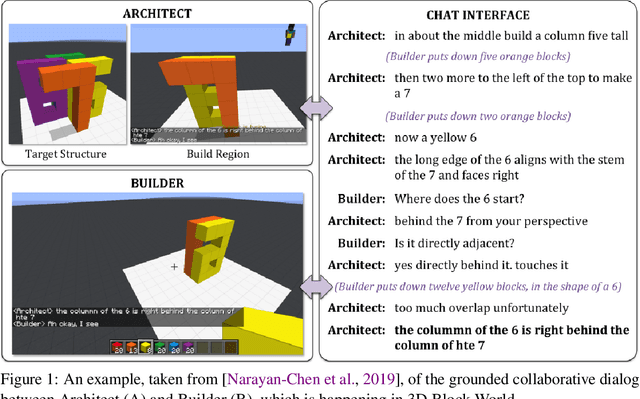

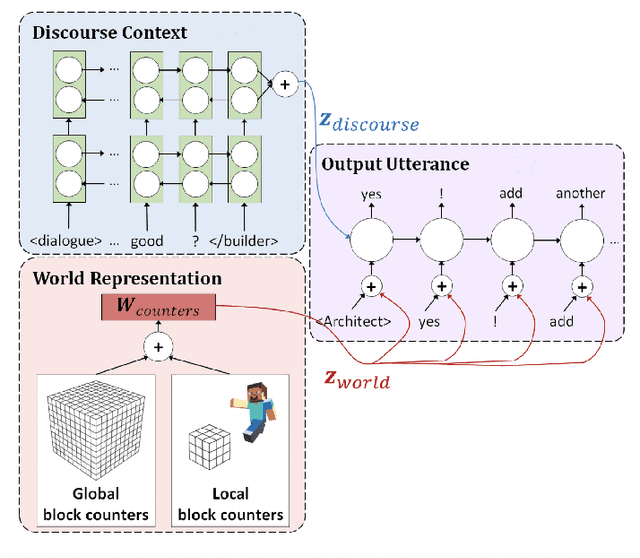
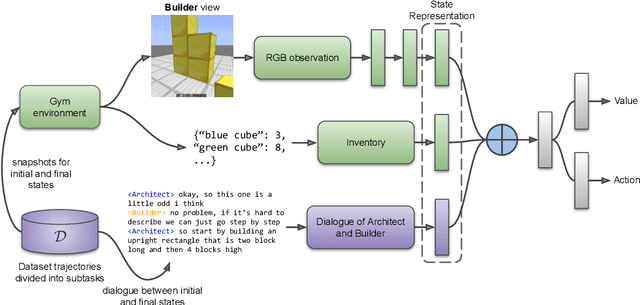
Abstract:Human intelligence has the remarkable ability to adapt to new tasks and environments quickly. Starting from a very young age, humans acquire new skills and learn how to solve new tasks either by imitating the behavior of others or by following provided natural language instructions. To facilitate research in this direction, we propose IGLU: Interactive Grounded Language Understanding in a Collaborative Environment. The primary goal of the competition is to approach the problem of how to build interactive agents that learn to solve a task while provided with grounded natural language instructions in a collaborative environment. Understanding the complexity of the challenge, we split it into sub-tasks to make it feasible for participants. This research challenge is naturally related, but not limited, to two fields of study that are highly relevant to the NeurIPS community: Natural Language Understanding and Generation (NLU/G) and Reinforcement Learning (RL). Therefore, the suggested challenge can bring two communities together to approach one of the important challenges in AI. Another important aspect of the challenge is the dedication to perform a human-in-the-loop evaluation as a final evaluation for the agents developed by contestants.
Strategically Efficient Exploration in Competitive Multi-agent Reinforcement Learning
Jul 30, 2021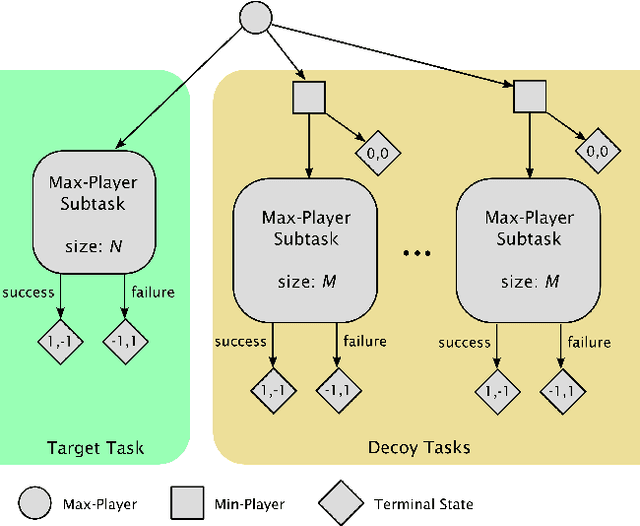
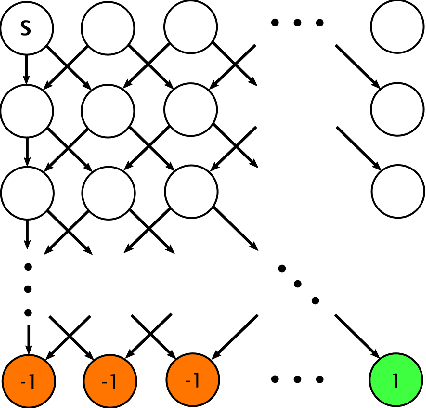

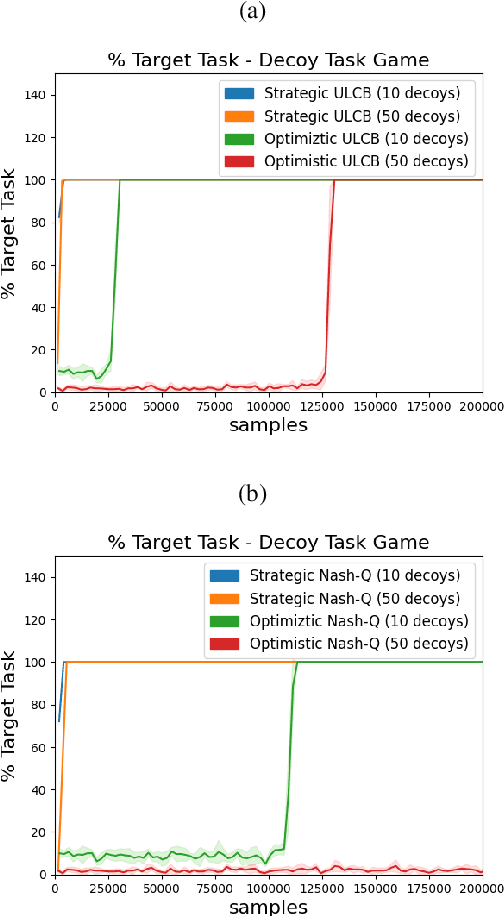
Abstract:High sample complexity remains a barrier to the application of reinforcement learning (RL), particularly in multi-agent systems. A large body of work has demonstrated that exploration mechanisms based on the principle of optimism under uncertainty can significantly improve the sample efficiency of RL in single agent tasks. This work seeks to understand the role of optimistic exploration in non-cooperative multi-agent settings. We will show that, in zero-sum games, optimistic exploration can cause the learner to waste time sampling parts of the state space that are irrelevant to strategic play, as they can only be reached through cooperation between both players. To address this issue, we introduce a formal notion of strategically efficient exploration in Markov games, and use this to develop two strategically efficient learning algorithms for finite Markov games. We demonstrate that these methods can be significantly more sample efficient than their optimistic counterparts.
SocialAI: Benchmarking Socio-Cognitive Abilities in Deep Reinforcement Learning Agents
Jul 06, 2021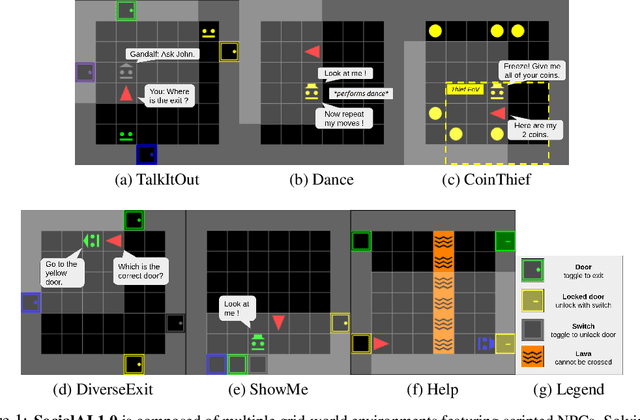
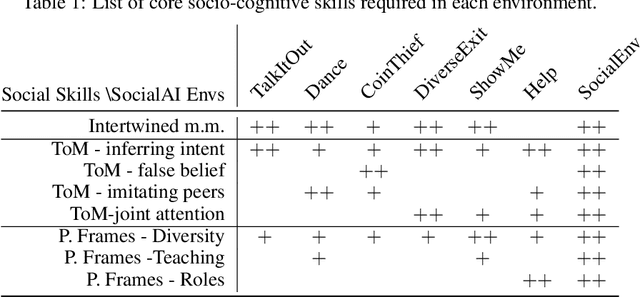
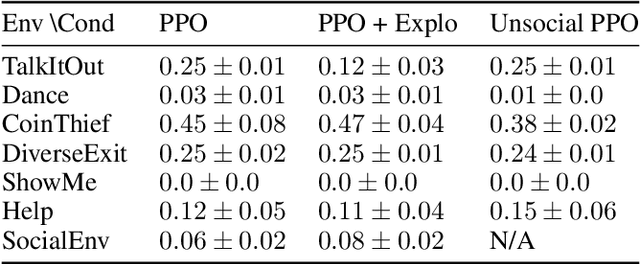

Abstract:Building embodied autonomous agents capable of participating in social interactions with humans is one of the main challenges in AI. Within the Deep Reinforcement Learning (DRL) field, this objective motivated multiple works on embodied language use. However, current approaches focus on language as a communication tool in very simplified and non-diverse social situations: the "naturalness" of language is reduced to the concept of high vocabulary size and variability. In this paper, we argue that aiming towards human-level AI requires a broader set of key social skills: 1) language use in complex and variable social contexts; 2) beyond language, complex embodied communication in multimodal settings within constantly evolving social worlds. We explain how concepts from cognitive sciences could help AI to draw a roadmap towards human-like intelligence, with a focus on its social dimensions. As a first step, we propose to expand current research to a broader set of core social skills. To do this, we present SocialAI, a benchmark to assess the acquisition of social skills of DRL agents using multiple grid-world environments featuring other (scripted) social agents. We then study the limits of a recent SOTA DRL approach when tested on SocialAI and discuss important next steps towards proficient social agents. Videos and code are available at https://sites.google.com/view/socialai.
 Add to Chrome
Add to Chrome Add to Firefox
Add to Firefox Add to Edge
Add to Edge